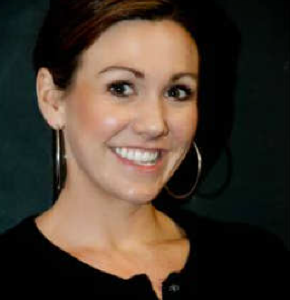Most women have no idea that taking birth control pills can cause pelvic pain and painful sex. There has been some controversy on the subject, but I am not here to argue a point. Instead, I want to share about my own experience. I know for a fact that oral contraceptives were one of the primary causes for my pain.
There is a detailed article by Dr. Andrew Goldstein on the IPPS blog which I will be referring to throughout this post. (The Dr. Oz blog also provides a good summary of the same article if you’re interested in checking it out.) What prompted this article last year was a genetic study that Dr. Goldstein and others completed which identified why some women are more susceptible to the damaging effects of birth control pills.
How birth control pills can cause pelvic pain:
Oral contraceptives signal your body (specifically your pituitary gland) to stop producing normal levels of specific hormones which support ovulation. This reduction also signals your body to reduce other hormones, like estrogen and progesterone, which are important for your sexual health. “But don’t birth control pills contain estrogen and progesterone?” you may be thinking. That’s true, but they are synthetic versions which means they don’t match your body’s natural hormones perfectly.
Compounding this lack of natural estrogen, progesterone, and other important hormones called androgens is the increase in Sex Hormone Binding Globulin, or SHBG. When the synthetic hormones in birth control pills are processed through your body (your liver, specifically), they cause an increase in your body’s production of SHBG. This is bad because SHBG attaches itself to sex hormones and makes those hormones inactive. Thus, even if you had sufficient amounts of sex hormones in your body, they are no longer working to keep you sexually healthy.
Birth control pills affected my own sexual health in a couple of ways. The first and most obvious way was by reducing my libido. I had a lot of other factors going on that made me not very interested in sex (namely the fact that it was painful). But, at a biological level I didn’t have a healthy amount of hormones to set any desire in motion. The second way was less obvious to me at the time, but had the most significant impact. The reduction in fully functioning hormones left my vestibule red, atrophied, and painful to the touch. Think about what happens to a flower petal that is no longer connected to its life-giving source of water—it wilts and shrinks, the soft surface becomes dry and fragile, and the vibrant color begins to fade. Similarly, the very part of me that was created for sexual pleasure was causing me great pain because it didn’t have the life-giving source of hormones it required to be healthy. I didn’t recognize these symptoms at the time, and neither did my doctors. It wasn’t until I saw a sexual health specialist that I learned about the importance of hormones and just how big an impact taking birth control pills had made on my sexual health. Continue reading
the vibrant color begins to fade. Similarly, the very part of me that was created for sexual pleasure was causing me great pain because it didn’t have the life-giving source of hormones it required to be healthy. I didn’t recognize these symptoms at the time, and neither did my doctors. It wasn’t until I saw a sexual health specialist that I learned about the importance of hormones and just how big an impact taking birth control pills had made on my sexual health. Continue reading




